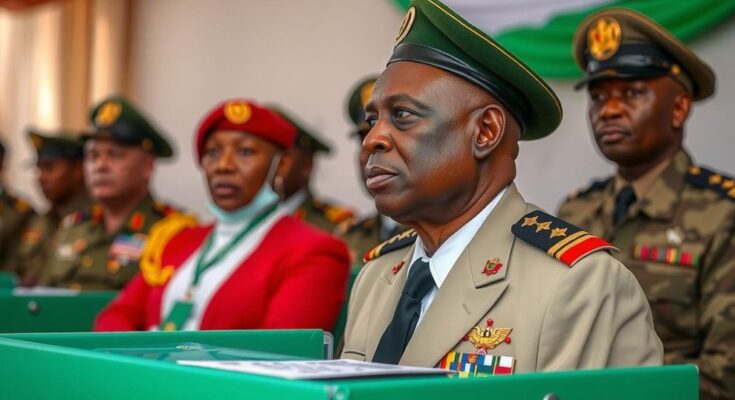Chadians voted in parliamentary elections on Sunday, ending a three-year military transition, yet major opposition parties boycotted due to concerns over electoral legitimacy. The elections are the first of their kind in over a decade, following a disputed presidential vote won by junta leader Mahamat Idriss Deby. With significant security challenges ongoing, the legitimacy of the electoral process remains under scrutiny.
On Sunday, Chadians participated in a parliamentary and regional election, marking the conclusion of a three-year transitional period under military governance. This election, the first in over a decade, was notably boycotted by major opposition parties which alleged the electoral process lacked credibility. Mahamat Idriss Deby, the transitional leader, previously won a contentious presidential election, and the current vote raises concerns over the legitimacy of the regime’s claim to power.
With over 8 million registered voters aimed at electing 188 legislators and local representatives, the elections are pivotal for a country that has not experienced a free transfer of power since its independence in 1960. The political atmosphere is further complicated as more than ten opposition parties, including the notable Transformers party, have rejected participation, denouncing the electoral process as a mere façade for sustaining the ruling family’s grip on power. Succes Masra, a prominent opposition figure, referred to the election as a “charade” and advised voters to abstain from participating.
This election emerges during a tumultuous period for Chad, which faces security threats from groups such as Boko Haram and a shift in its historical military alliance with France. Observers highlight that the core issue lies in the risk of a protracted transition period and the exclusion of dissenting voices in this significant electoral process. Political analysts assert that while the election marks a vital step towards potential democracy, the absence of robust opposition raises questions about its integrity and future governance in Chad.
Chad has faced significant political challenges since gaining independence from France in 1960, characterized by a lack of democratic transitions. The country recently entered a transitional phase following the death of long-standing leader Idriss Deby Itno in 2021, with Mahamat Idriss Deby assuming leadership. The current elections are designed to conclude this transitional period, with expectations for a return to democratic governance. However, the political landscape remains fraught with opposition dissent and security concerns, indicating a complex road ahead for the nation.
In conclusion, the parliamentary and regional elections in Chad symbolize a critical juncture in the country’s political journey following military rule. Despite efforts to transition towards democracy, the mass opposition boycott highlights significant concerns regarding the legitimacy of the electoral process. As Chadians vote amidst ongoing security challenges, the path towards a stable democratic governance remains uncertain, largely dependent on the regime’s responsiveness to public dissent and the international community’s engagement.
Original Source: abcnews.go.com




